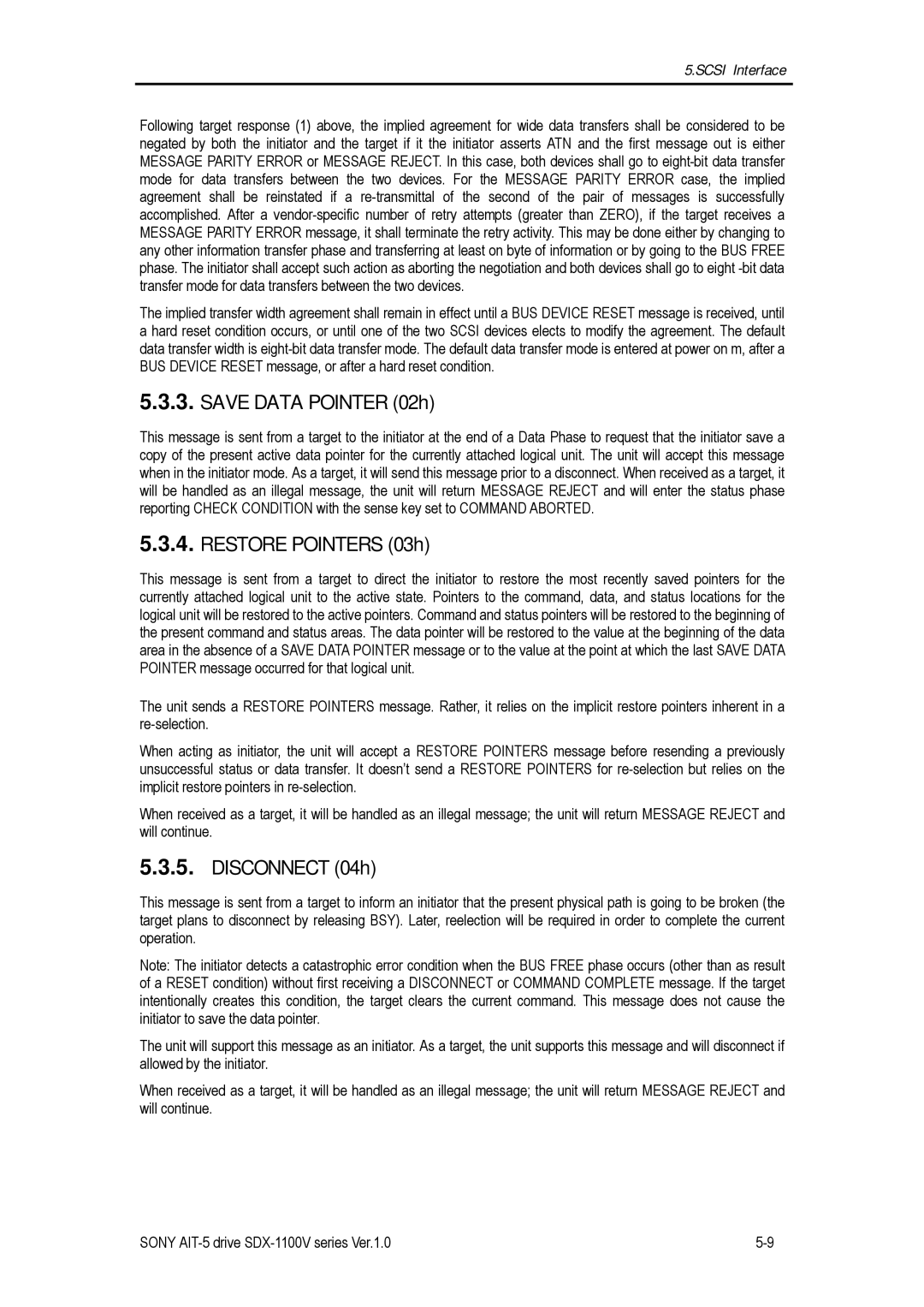5.SCSI Interface
Following target response (1) above, the implied agreement for wide data transfers shall be considered to be negated by both the initiator and the target if it the initiator asserts ATN and the first message out is either MESSAGE PARITY ERROR or MESSAGE REJECT. In this case, both devices shall go to
The implied transfer width agreement shall remain in effect until a BUS DEVICE RESET message is received, until a hard reset condition occurs, or until one of the two SCSI devices elects to modify the agreement. The default data transfer width is
5.3.3.SAVE DATA POINTER (02h)
This message is sent from a target to the initiator at the end of a Data Phase to request that the initiator save a copy of the present active data pointer for the currently attached logical unit. The unit will accept this message when in the initiator mode. As a target, it will send this message prior to a disconnect. When received as a target, it will be handled as an illegal message, the unit will return MESSAGE REJECT and will enter the status phase reporting CHECK CONDITION with the sense key set to COMMAND ABORTED.
5.3.4.RESTORE POINTERS (03h)
This message is sent from a target to direct the initiator to restore the most recently saved pointers for the currently attached logical unit to the active state. Pointers to the command, data, and status locations for the logical unit will be restored to the active pointers. Command and status pointers will be restored to the beginning of the present command and status areas. The data pointer will be restored to the value at the beginning of the data area in the absence of a SAVE DATA POINTER message or to the value at the point at which the last SAVE DATA POINTER message occurred for that logical unit.
The unit sends a RESTORE POINTERS message. Rather, it relies on the implicit restore pointers inherent in a
When acting as initiator, the unit will accept a RESTORE POINTERS message before resending a previously unsuccessful status or data transfer. It doesn’t send a RESTORE POINTERS for
When received as a target, it will be handled as an illegal message; the unit will return MESSAGE REJECT and will continue.
5.3.5.DISCONNECT (04h)
This message is sent from a target to inform an initiator that the present physical path is going to be broken (the target plans to disconnect by releasing BSY). Later, reelection will be required in order to complete the current operation.
Note: The initiator detects a catastrophic error condition when the BUS FREE phase occurs (other than as result of a RESET condition) without first receiving a DISCONNECT or COMMAND COMPLETE message. If the target intentionally creates this condition, the target clears the current command. This message does not cause the initiator to save the data pointer.
The unit will support this message as an initiator. As a target, the unit supports this message and will disconnect if allowed by the initiator.
When received as a target, it will be handled as an illegal message; the unit will return MESSAGE REJECT and will continue.
SONY |
